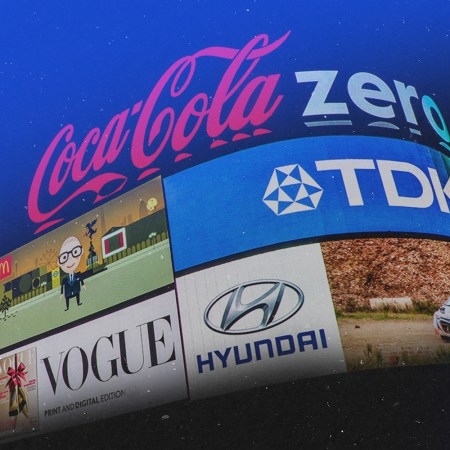“Hello Boys!”
If you were a red-blooded male in ‘94, chances are this phrase is permanently embedded in your mind. It was the motto of Wonderbra’s nationwide billboard campaign, which featured supermodel Eva Herzigova donning naught but black lace panties and the exceptionally, shall we say, buoyant brassiere.
And it quickly sent drivers veering off the road. A number of scholarly studies into the dangers posed by garish billboards followed, including a landmark MIT report (Accident Analysis and Prevention) that concluded that advertisements definitely impact a driver’s attention span.
But a new study is somewhat refuting that, by declaring that putting taboo words on a billboards — such as “f**k,” “a**hole” and “dildo” — actually improves driver awareness.
Michelle Chan and a team from the University of Alberta recently created a driving simulator study to evaluate roadside advertising’s effect on drivers. In addition to the aforementioned blue phrases, drivers passed positive words like “liberty,” negative words like “gloom” and neutral words like “errand.”
The results: very interesting. While passing by the taboo words, the driver’s performance did not worsen. In fact, their lane positioning got better. The researchers attribute this improvement to “cognitive tunneling.” In short, taboo words are emotionally arousing, which triggers a narrowing of focus to a singular part of one’s visual environment.
The verdict, however, is still out on a driver’s ability to concentrate in the face of stellar female attributes.
This article appeared in an InsideHook newsletter. Sign up for free to get more on travel, wellness, style, drinking, and culture.
























